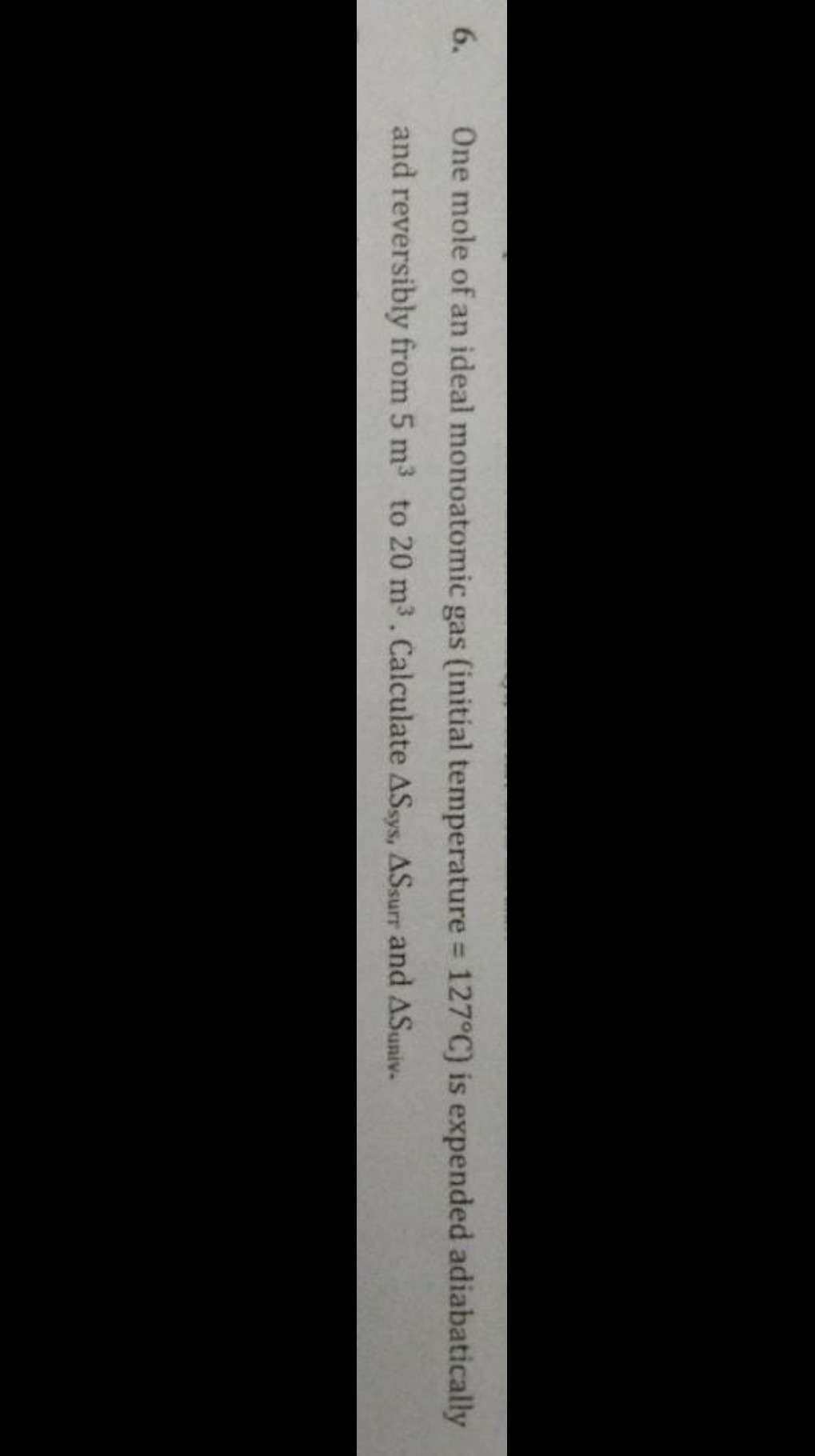Question
Question: One mole of an ideal monoatomic gas (initial temperature = 127°C) is expended adiabatically and reve...
One mole of an ideal monoatomic gas (initial temperature = 127°C) is expended adiabatically and reversibly from 5 m³ to 20 m³. Calculate ΔSsys, ΔSsurr and ΔSuniv.

ΔSsys=0, ΔSsurr=0, ΔSuniv=0
Solution
The problem asks to calculate the change in entropy for the system (ΔSsys), surroundings (ΔSsurr), and universe (ΔSuniv) for an ideal monoatomic gas undergoing a reversible adiabatic expansion.
1. Calculate ΔSsys (Change in entropy of the system): For any reversible process, the change in entropy of the system is given by: ΔSsys=∫TdQrev
Since the process is adiabatic, there is no heat exchange, meaning dQrev=0. Therefore, ΔSsys=∫T0=0
2. Calculate ΔSsurr (Change in entropy of the surroundings): For an adiabatic process, there is no heat exchange between the system and the surroundings. This means the heat absorbed by the surroundings (Qsurr) is zero. The change in entropy of the surroundings is given by: ΔSsurr=TsurrQsurr
Since Qsurr=0, ΔSsurr=Tsurr0=0
3. Calculate ΔSuniv (Change in entropy of the universe): The change in entropy of the universe is the sum of the change in entropy of the system and the surroundings: ΔSuniv=ΔSsys+ΔSsurr
Substituting the calculated values: ΔSuniv=0+0=0
This result is consistent with the definition of a reversible process, for which the total entropy change of the universe is always zero. The initial temperature, volumes, and the type of gas (monoatomic) are additional information that would be necessary if the process were not explicitly stated as reversible adiabatic (e.g., for calculating final temperature or if the process was irreversible), but they are not required for this specific calculation.
Explanation of the solution:
For a reversible adiabatic process:
- Adiabatic implies no heat exchange (Q=0).
- Reversible implies no entropy generation, so ΔSuniv=0.
- ΔSsys=∫TdQrev. Since dQrev=0 for an adiabatic process, ΔSsys=0.
- ΔSsurr=TsurrQsurr. Since Qsurr=0 for an adiabatic process, ΔSsurr=0.
- ΔSuniv=ΔSsys+ΔSsurr=0+0=0.
